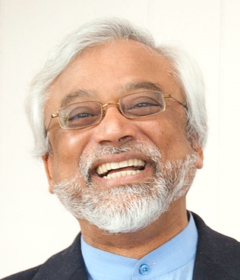By Jamal Rahman
“O Mary! Behold! God has elected thee and made thee pure, and raised thee above all the women of the world.” ~Qur’an 3:42
Woman is a ray of God. She is not that earthly beloved: she is creative, not created.” ~Rumi
In the Islamic tradition, Mary symbolizes the sacred and creative mission of every single human on earth. We are mysteriously placed here to give birth to our higher self, our inner Jesus. This essential work of evolving into the fullness of our being and connecting with our divine essence is not easy. Over a lifetime, we have to continuously purify ourselves with the divine feminine qualities of love, compassion and wise discernment.
In the Qur’an, Mary is singularly venerated and exalted. Chapter 19 in the holy book is titled “Maryam,” and Angel Gabriel appears to an astonished Mary and proclaims that God has purified her and chosen her to give birth to Jesus who embodies the “Spirit of God.”
The promise of this miraculous “virgin birth” leaves Mary bewildered and confused. But in course of time she suffers “birth pangs,” and retreats to a secluded place. Magically, a withered date palm tree springs to life and offers her sustenance and, miraculously, a stream appears and quenches her thirst. Then, she gives birth to Jesus.
Spiritual teachers glean profound insights from this story in the Qur’an. We arrive on earth confused, or as Rumi says, a “little tipsy.” We have no idea where we came from and why we are here. Over time it dawns on us that one critical purpose on earth is to give birth to our divine higher self. This birthing work is inconvenient. The inner work of purification, of transforming our ego and opening our heart, involves “birth pangs.” But take heart, say the sages. Just as God amazingly provided help for Mary, Divinity will assist us in ways we cannot imagine. The Prophet Muhammad said that if you take one step towards God, He takes ten steps towards you; walk in His direction and She comes running to you.Most of all, take note, the teachers emphasize, that it requires the womb of a Mary to give birth to our inner Jesus. Their prayer for us is that in this lifetime work of giving deliverance to our divine essence, may we be loving, compassionate and wise with ourselves. In the Arabic language, the words unconditional love (Rahmah) and compassion (Rahman) have their roots in raham which means womb. Not surprisingly, the words divine essence (dhat) and wisdom (hikmah) are feminine in Arabic.


